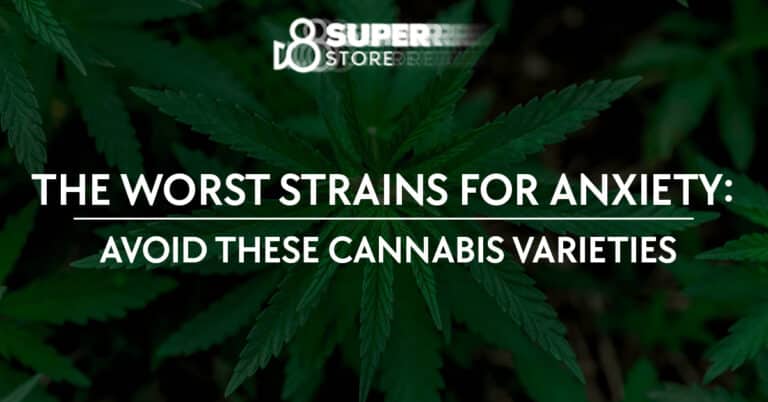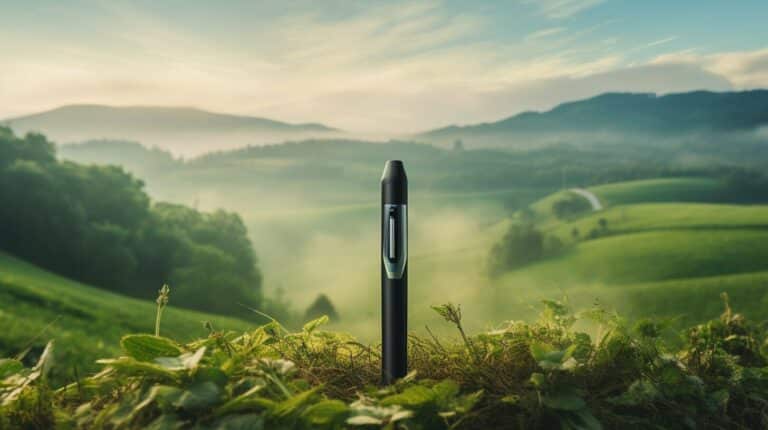Is Delta-11 THC Legal in Oregon? An Authoritative Guide to State Regulations
Dive into Oregon’s chill vibe with their weed laws, and uncover the scoop on thrill-inducing delta-11 THC. Oregon led the pack by giving the green light to marijuana for health and then for fun. Among the stars, the psychedelic delta-9 THC also sparkles. It feels like you’re getting a secret backstage tour. Hang tight to discover why this is a big deal!
The legality of various cannabinoids, however, isn’t always clear-cut. While delta-9 THC is legal, the status of delta-11 THC — a less common cannabinoid — is more ambiguous. If you’re considering products containing delta-11 THC, it’s important to stay informed about state legislation, as regulations can differ significantly from those for delta-9 THC. In Oregon, it’s essential to verify the legal intricacies of delta-11 THC to ensure compliance with state laws.
Table of contents
Legal Landscape of Cannabis in Oregon
In Oregon, your understanding of cannabis legality must account for state laws, federal influences, and the impacts of recent legislation such as the 2018 Farm Bill.
State Cannabis Laws
Oregon stands as a pioneer in cannabis legalization, having decriminalized marijuana in 1973 and subsequently legalized its medical use in 1998. You can legally possess and use cannabis in Oregon if you are 21 years or older, a movement solidified when Measure 91 was passed in 2014. Specifically, you are allowed to possess up to one ounce of cannabis in public and up to eight ounces at home.
Cultivation is permissible too, with up to four plants allowed per residence. However, you should be aware that consumption in public remains illegal. It’s important for you to know that the legal framework may vary across different cities and counties within the state, so local laws should also be considered.
Federal Influence on Cannabis Legality
While you have state-level permissions to use cannabis in Oregon, federal law still classifies marijuana as a Schedule I controlled substance. This means that on a national level, marijuana is considered to have no accepted medical use and a high potential for abuse. Despite this federal stance, Oregon has established its own regulatory system, which permits production, distribution, and possession, conflicting with federal prohibitions. You must keep in mind that federal law can be enforced in Oregon, potentially leading to legal consequences despite state permissions.
Impact of the 2018 Farm Bill
In relation to hemp products, the legal scenario changed significantly with the enactment of the 2018 Farm Bill. This legislation federally legalized hemp that contains less than 0.3% delta-9-tetrahydrocannabinol (THC). For you in Oregon, this means that hemp-derived products fitting this description, including delta-11 if it falls within these THC limits, are legally permissible under federal and state law. You are allowed to buy, sell, and possess such hemp products in the state, which has further influenced the complexity of cannabis regulation.
Remember to always stay informed about the latest regulations as they can evolve, impacting how cannabis products, including those with various THC compounds like delta-11, are treated under the law in Oregon.
Delta 11 THC Specifics
Delving into the specifics of Delta 11 THC informs you of its distinction from other cannabinoids and its place within the psychoactive landscape of tetrahydrocannabinol compounds.
Understanding Delta 11 THC
Delta 11 THC, a cannabinoid similar to Delta 9 THC and Delta 8, is another THC isomer found in the cannabis plant. Its specific molecular structure gives it unique properties and effects, which may vary from the more well-known Delta 9 THC.
Comparison With Other Cannabinoids
Delta 11 THC is one in a series of THC compounds, which include Delta 9, Delta 8, Delta 10, and THCV. These cannabinoids differ primarily in their chemical structure, leading to varying degrees of psychoactivity:
- Delta 9 THC: The most prevalent and potent form known for its high psychoactive effect.
- Delta 8 THC: Less potent than Delta 9, known for a milder high.
- Delta 10 THC: Similar in structure to Delta 8 but with distinct effects.
- THCV: Less psychoactive, with a reputation for a clear-headed, stimulating high.
Delta 11 sits within this spectrum, where its specific psychoactive traits are being studied and compared to its counterparts.
The Science of THC Isomers
THC isomers like Delta 11 are variants of tetrahydrocannabinol, sharing a formula but differing in the arrangement of atoms. The high you experience from any THC compound, including Delta 11, is due to the interaction these molecules have with cannabinoid receptors in your body. The precise effects of Delta 11 THC are under scientific review, as researchers work to understand how its distinctive structure influences its psychoactivity compared to other THC isomers.
Regulation of Hemp-Derived Substances
In navigating the legal landscape of hemp-derived substances, you must understand the specific classifications and regulations that apply to these products, including their standing in Oregon and the distinctions between hemp-derived and synthetic cannabinoids.
Definition and Classification of Hemp
Hemp is defined under federal law as the Cannabis sativa L. plant containing no more than 0.3% delta-9 tetrahydrocannabinol (THC) on a dry weight basis. This classification distinguishes hemp from marijuana, which is a controlled substance due to higher THC levels. Hemp-derived products such as cannabidiol (CBD) are legally produced from hemp plants and must abide by this THC threshold.
Oregon’s Stance on Hemp-Derived Cannabinoids
Oregon law aligns with federal definitions and allows the production, sale, and possession of hemp and hemp-derived cannabinoids including CBD. You should be aware that regulations ensure these products do not exceed the legal THC limit, maintaining their distinction from regulated marijuana products. For specific updates on state policy, refer to the clear regulatory guidance provided by Colorado, which Oregon often looks to as a model.
Hemp-Derived vs. Synthetic Cannabinoids
When exploring hemp-derived cannabinoids, it’s crucial to differentiate them from synthetic ones. Hemp-derived cannabinoids are extracted directly from hemp plants and are subject to agricultural regulations. On the contrary, synthetic cannabinoids are created in a lab and can have different legal and safety profiles. In Oregon, your assurance in the legitimacy of hemp products hinges on them being naturally sourced and compliant with state and federal laws regarding THC content.
Legal Implications for Consumers
When considering Delta 11 THC in Oregon, you need to be aware of the legal standing and implications that come with its use. Knowing the laws regarding availability and understanding the potential risks are critical in making informed decisions.
Delta 11 Availability in Oregon
Delta 11 THC, like other hemp-derived compounds, has a complicated legal status. In Oregon, cannabis is legal for both medical and recreational use, which may offer a certain level of access to Delta 11 products at local dispensaries. However, the specifics of Delta 11’s legality can be murky, since state regulations can differ from federal laws. It’s essential to know that even though you can legally purchase cannabis products in Oregon, certain cannabinoids might still fall into a gray area.
Potential Legal Risks and Considerations
Before you decide to use Delta 11 THC, consider the potential legal risks. For one, while you have access to cannabis products via dispensaries, they’re subject to compliance with both state and federal law. If Delta 11 is not clearly defined under these laws, there may be risks attached.
Furthermore, consider how using Delta 11 THC could impact your responsibilities. For instance, if you’re subject to regular drug testing, be aware that THC compounds may show up and create complications with employment. Since Delta 11 interacts with receptors in the brain, it can influence your anxiety levels and other aspects of your mental state. While some claim benefits, the effects might not be considered safe or legal under all circumstances.
In terms of legal considerations, always stay updated on the current laws and be prepared to adapt to any changes, as the cannabis industry and its regulations are continually evolving.
Interstate Perspectives
When considering the legality of Delta-11 in Oregon, it’s important to understand how federal regulations interface with state laws, as well as how Oregon’s stance compares to other states’ approaches to similar substances.
Comparison with Other States
Oregon has specific state laws governing cannabis derivatives, which may differ from Colorado, where cannabis products have been widely legalized and regulated. In comparing Delta-11’s legal status, it’s crucial to note that California has its own comprehensive legal framework for cannabis and its derivatives, while states like Florida and Georgia have varied restrictions and permissions that may influence inter-state legal perspectives.
States’ rights to enact such legislation come under the umbrella of federal regulations, which often serve as a guide or constraint on state policies. For example, the Department of Agriculture oversees hemp cultivation and its derivatives under the Farm Bill, yet the status of Delta-11 could be subject to interpretation under these federal guidelines.
Federal Regulations and State Laws
Federal regulations, including guidance from the Pentagon and the broader United States federal stance on controlled substances, can impact whether Delta-11 is legal or not on a state level. The Controlled Substances Act, for instance, doesn’t specifically enumerate Delta-11, leaving a gap for states to define its legality.
While federal laws provide a framework, states like Oregon have the autonomy to navigate within that structure. The interplay between state autonomy and federal oversight creates a complex legal landscape where Delta-11’s legality in Oregon may not align with federal views or the regulations of neighboring states.
Future of THC Regulations
In Oregon, the legal landscape surrounding tetrahydrocannabinol (THC) compounds like delta-8 is complex and ever-evolving. Your understanding of current regulations and anticipation of future changes is vital for staying compliant.
Trends in Legalization Movements
Legalization trends indicate a growing acceptance of cannabis and its derivatives at the state level. Since the passage of the 2018 Farm Bill, you’ve seen a distinct differentiation in how state law and federal law interact regarding cannabinoids. This bill federally legalized hemp-derived compounds, provided they contain less than 0.3% THC. However, state laws, such as those in Oregon, may impose stricter regulations on THC analogues, like delta-8 and potentially delta-11, due to their psychoactive properties. Monitoring these movements is essential, as future state legislation could either align with federal policies or diverge further, affecting the legal status of specific compounds.
Scientific Research and Its Impact on Legislation
Scientific research plays a crucial role in shaping both state and federal policies. As new findings emerge about the safety, efficacy, and societal impact of THC compounds, regulatory bodies like the FDA consider this data when drafting legislation. For example, comprehensive studies on delta compounds could influence future amendments to the legal definition of hemp as established by the Farm Bill, or prompt the FDA to issue new guidelines regarding the legality and control of these substances.
By staying informed about these key facets—legal trends and scientific research—you’re better equipped to navigate the shifting terrain of THC regulations in Oregon.
Frequently Asked Questions
Before we dive into the specifics, understand that the legal landscape for cannabinoids like Delta 11 in Oregon is nuanced, and their psychoactive properties, potency, and detectability in drug tests are essential factors to consider.
What regulations exist for the legality of cannabinoids like Delta 11 in Oregon?
In Oregon, the regulations surrounding cannabinoids are detailed and frequently updated. Delta 11’s legality hinges on its derivation; cannabinoids derived from legal hemp sources that contain less than 0.3% Delta 9 THC are typically regarded as lawful under the 2018 Farm Bill. However, state laws may have additional stipulations, so it’s crucial to stay informed on local Oregon laws.
Is the use of Delta 11 associated with psychoactive effects?
Yes, the use of Delta 11 is associated with psychoactive effects. Though research on Delta 11 is not as extensive as on Delta 9 THC, it is an analogue, and you can expect it to produce a high, albeit potentially with different characteristics.
How does Delta 11 compare in potency to Delta 9 THC?
Delta 11 and Delta 9 THC share chemical similarities, but Delta 11 is typically considered less potent. The experience may vary on an individual basis, and the specific potency can depend on the product’s concentration and formulation.
Can Delta 11 be detected in standard drug screenings?
Standard drug screenings commonly test for the presence of THC metabolites. Since Delta 11 is a form of THC, it is likely that its use could result in a positive test, much like Delta 9 THC.
Are there any known safety concerns with Delta 11 usage?
As with any cannabinoid, there may be safety concerns, especially with improper dosing or when combined with other substances. The lack of extensive research means you should proceed with caution if choosing to use Delta 11.
In terms of strength, how does Delta 11 contrast with Delta 10?
Delta 11 is generally considered to be more potent than Delta 10, although the effects can vary between individuals. It is important to remember that these cannabinoids can affect everyone differently, and personal experience is often the best guide.







